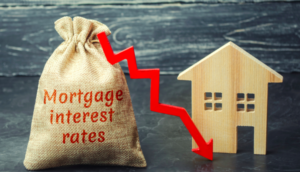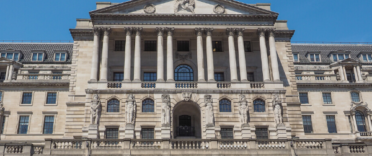 With the Bank of England primed to cut interest rates from 0.1% to zero or negative rates, mortgage holders may consider remortgaging to benefit from the potential change. However, while the promise of historically low rates is tempting for those looking for an attractive deal, there are several important factors to consider before moving from your current deal.
With the Bank of England primed to cut interest rates from 0.1% to zero or negative rates, mortgage holders may consider remortgaging to benefit from the potential change. However, while the promise of historically low rates is tempting for those looking for an attractive deal, there are several important factors to consider before moving from your current deal.
What does negative interest mean?
The Central Bank has reportedly approached the major banks to assess if they are ready to implement the rate cut, a move it is considering alongside a raft of other stimulus methods to boost consumer confidence and help prop up the property market in the face of continued challenges from coronavirus.
While a move to a negative rate environment is deeply unappealing to savers, it could be beneficial to mortgage borrowers, who could see their monthly repayments reduce if they are on a tracker or variable rate deal. However, hopes that lenders could actually end up paying borrowers interest on their loans are unfounded, with terms and conditions prohibiting rates on individual mortgages going below zero. In reality, borrowers are set to see repayments fall by a maximum of 0.1% to 0%, even if the Bank Base Rate goes lower than that.
What about fixed rate deals?
For those reaching the end of their current fixed rate now is theoretically a good time to secure a cheaper deal. Borrowers may even be thinking of remortgaging to take advantage of this unprecedented opportunity. Unfortunately, while the headlines are encouraging, the environment for borrowers is increasingly hostile, with rates actually rising and a large number of deals being pulled. Indeed, average mortgage rates have been trending upwards, while the number of products available has halved since the beginning of lockdown in March.
Overall, lenders are worried about the risk of people defaulting on their loans as economic conditions tighten in the face of local lockdowns, increased unemployment and general uncertainty over the potential future impact of the pandemic. As a result they are generally trying to create a cushion of reserve cash, minimise exposure to higher-risk borrowers and reduce overall loan-to-value.
How to secure the best mortgage
Against this more challenging backdrop the services of a good whole-of-market mortgage broker are invaluable, helping you not only find a good deal in a shrinking market but also ensure you are likely to meet the lender's specific eligibility criteria. If you don't know a mortgage adviser whose opinion you trust, then follow these simple steps to request a free mortgage review from a vetted FCA regulated mortgage professional. Alternatively read our article "How to get the best mortgage deal".




